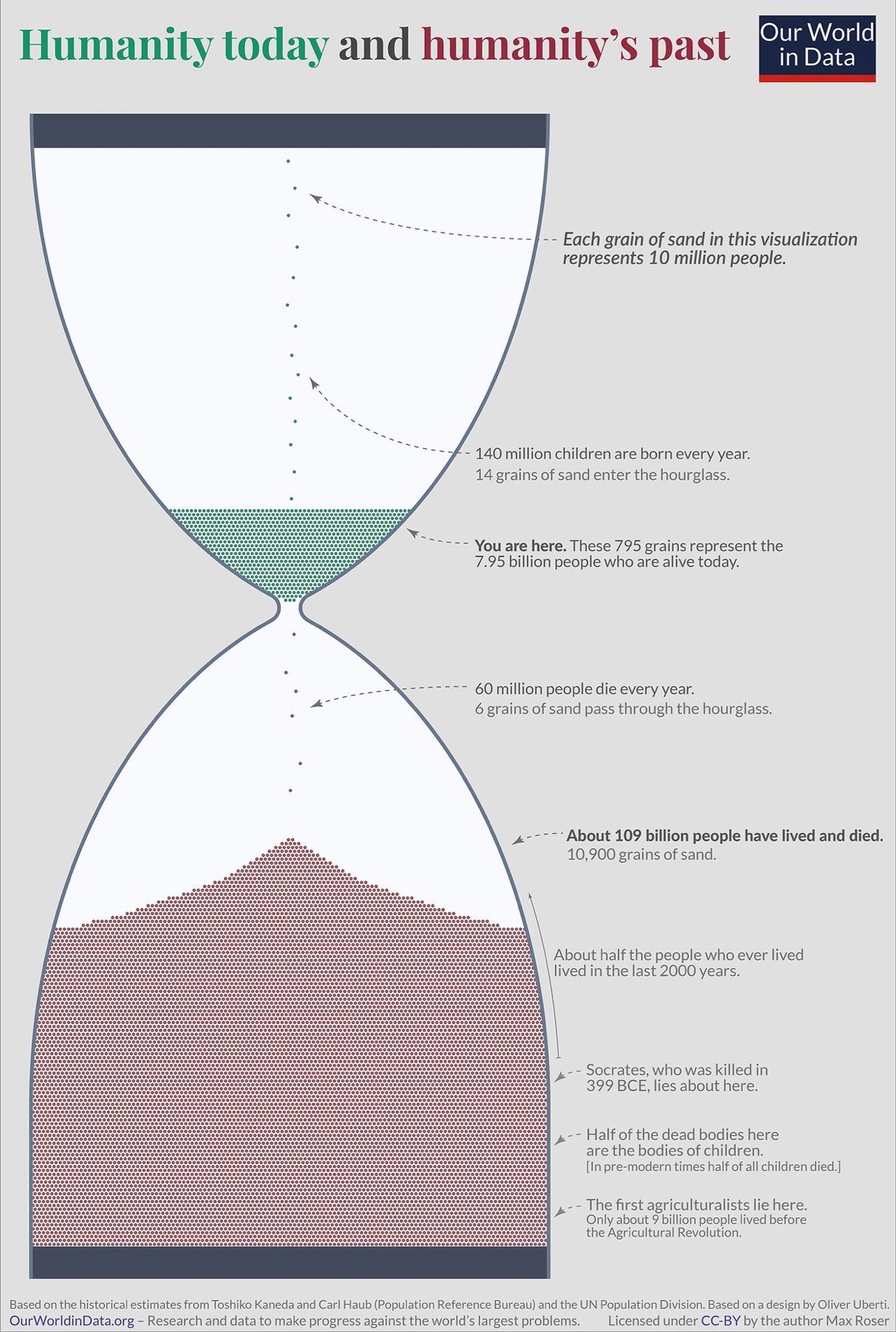this post was submitted on 23 Jun 2024
599 points (99.2% liked)
Damn, that's interesting!
4674 readers
1 users here now
- No clickbait
- No Racism and Hate speech
- No Imgur Gallery Links
- No Infographics
- Moderator Discretion
- Repost Guidelines
- No videos over 15 minutes long
- No "Photoshopped" posts
- Image w/ text posts must be sourced in comments
founded 3 years ago
MODERATORS
you are viewing a single comment's thread
view the rest of the comments
view the rest of the comments

Well. Human societies have an upper limit on the amount of population they can sustain, determined by their access to natural resources, technology, and social organization.
Malthus got a lot of shit because he came up with his theories exactly when civilization was entering into a period where the advancements in technology were drastically expanding those limits, and because his ideas were instrumentalized by a lot of unsavory types, but he did find a (very incomplete) segment of truth.
Right now, the biggest danger of it all becoming relevant again is the possibility that sustained ecological disaster might dramatically lower our population upper limit without us having the capacity to react fast enough.
But that would be represented in this analogy by a limited size on the top half of the hourglass, not the bottom one.